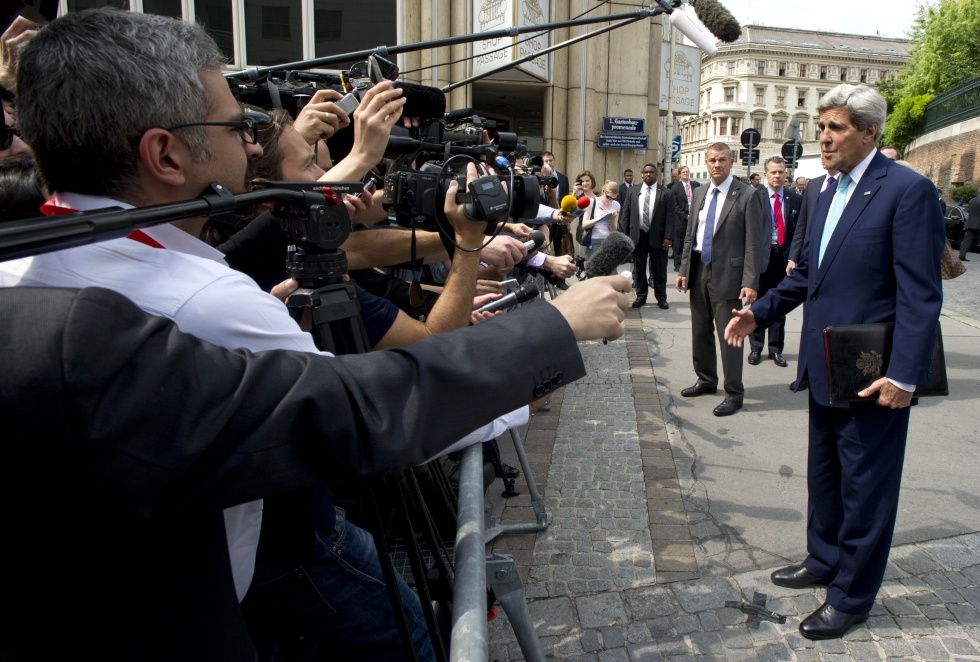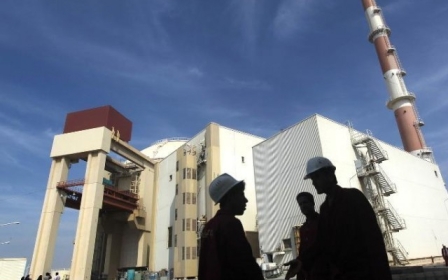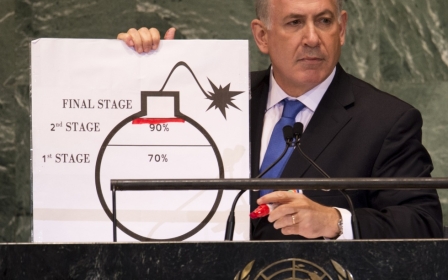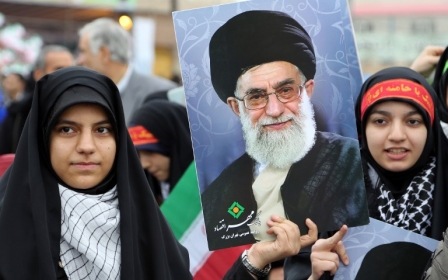Netanyahu was 'wrong' on Iran nuclear deal says Kerry

In the latest round of the frosty relationship between the United States’ presidential office and Israeli Prime Minister Benjamin Netanyahu, US Secretary of State John Kerry reprimanded Netanyahu for opposing negotiations aimed at curbing Iran’s nuclear programme.
“He [Netanyahu] was wrong,” Kerry told lawmakers at the House Foreign Affairs Committee meeting on the State Department budget plan for 2016 on Wednesday. “And today he’s saying, ‘Oh, we should extend that interim agreement.’”
Netanyahu has long been a vocal opponent of the nuclear negotiations between Iran and the six world powers, nicknamed the P5+1. The negotiations between the five permanent members of the UN Security Council plus Germany and Iran are currently ongoing in Geneva, with an interim deal on Iran’s nuclear programme expected to be reached before the end of the March deadline and a final deal hoped for by the summer.
On Tuesday, Netanyahu stated that he will do everything he can to thwart such an agreement, describing an interim deal with Iran as the “deal of the century” for Tehran which would formalise Tehran’s bid to acquire nuclear weapons.
“This agreement, if indeed it is signed, will allow Iran to become a nuclear threshold state,” he said. “It is my obligation as prime minister to do everything that I can to prevent this agreement. Therefore, I will go to Washington … because the American Congress is likely to be the final brake before the agreement.”
Netanyahu is controversially due to address Congress on 3 March, following an invitation by Republican lawmakers. The visit has been repeatedly criticised by the White House for breaking protocols that prevent the sitting US President from meeting with any foreign dignitary vying for re-election. Israel is heading to the polls on 17 March, with Netanyahu’s Likud and the rival left-of-centre Zionist camp currently head to head in the polls.
Netanyahu’s contradictory comments were made in the aftermath of the revelation that his own government’s intelligence agency did not believe Iran was producing nuclear weapons. Top secret files released by the Guardian and Al-Jazeera earlier this week revealed that the Israeli Mossad believed in 2012 that Iran was “not performing the activity necessary to produce weapons.”
During a meeting with his Likud party on Wednesday, the Israeli PM said that the world powers “have given up” on stopping Iran from developing nuclear weapons, a remark that irked the Obama administration further.
The White House press secretary Josh Earnest hit back at Netanyahu and told reporters that the US president believes the negotiations are the best way to ensure Iran does not develop nuclear weaponry.
“If the prime minister [Netanyahu] has an alternative about how these concerns can be more effectively resolved, then we’d certainly be interested in hearing his ideas for that,” Earnest said.
He added that if Iran were to obtain a nuclear weapon that might cause a possible nuclear arms race, which would add instability to the already volatile Middle East. The best way to avoid this outcome was to negotiate with Iran, he explained.
Kerry has also been quick to reassure lawmakers and in his Wednesday address stressed that Iran, as it is a member of the Treaty on the Non-Proliferation of Nuclear Weapons, which allows members to pursue peaceful proliferation, was obliged to reveal all information about its nuclear programme.
He also mentioned that the US had not removed any options, noting that sanctions and military options remain on the table in case an agreement fails. The deadline for the final agreement is 1 July.
The clash between the Israeli and US governments is expected to escalate in Netanyahu’s speech to the US Congress next week, which will not be attended by the president, nor top administration members and officials of the Democratic Party.
Netanyahu is keen to maintain an anti-Iran alliance in Israel and Washington by positing Iran as an existential threat to Israel and the West.
This is mainly due to the fact that his own government coalition is fuelled by an aggressive anti-Iran rhetoric. By neutralising the nuclear threat that is attributed to Iran in the region, says one analyst, the focus will no doubt shift to Israel’s own cache of nuclear arsenal.
Middle East Eye propose une couverture et une analyse indépendantes et incomparables du Moyen-Orient, de l’Afrique du Nord et d’autres régions du monde. Pour en savoir plus sur la reprise de ce contenu et les frais qui s’appliquent, veuillez remplir ce formulaire [en anglais]. Pour en savoir plus sur MEE, cliquez ici [en anglais].




